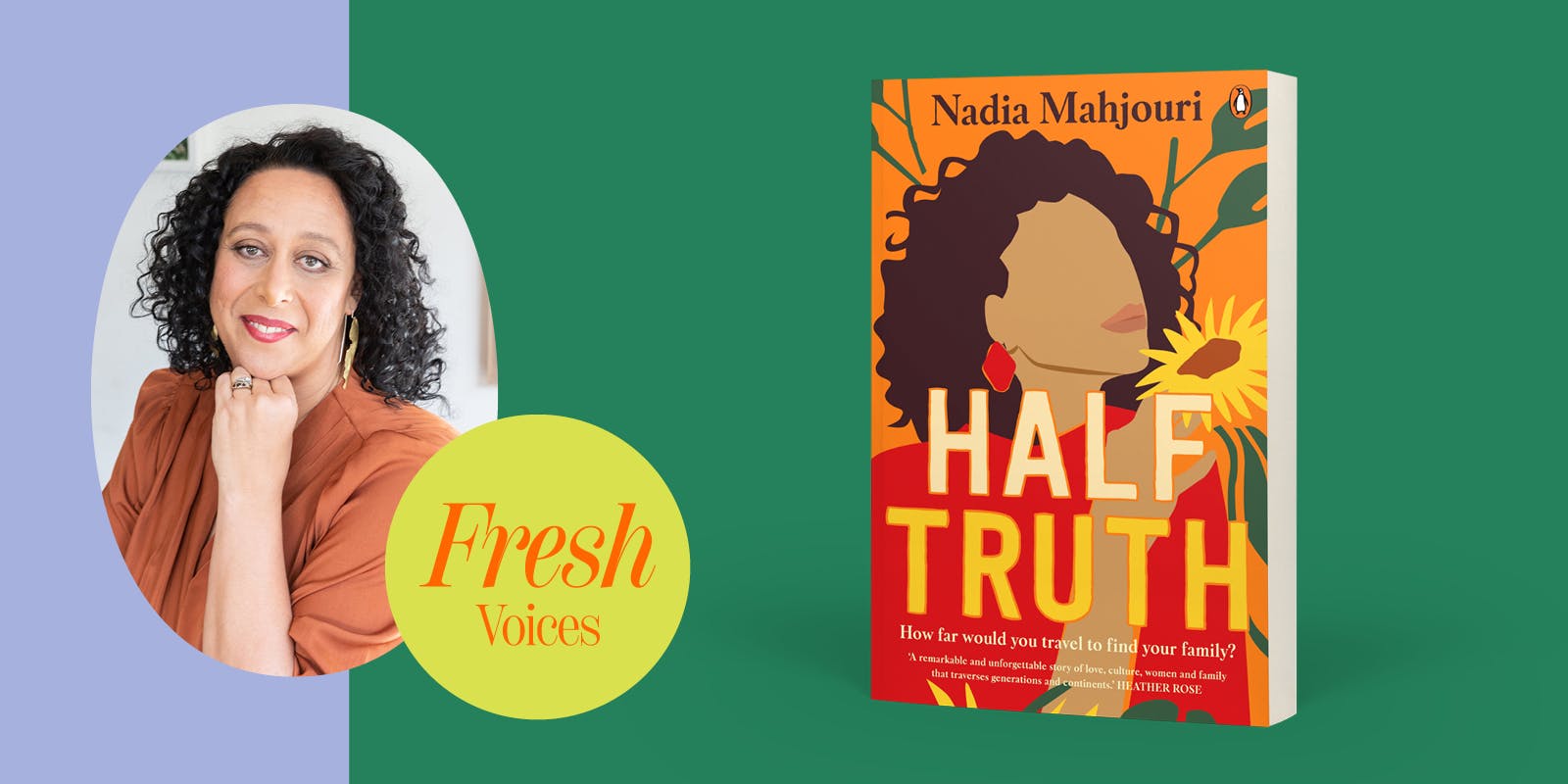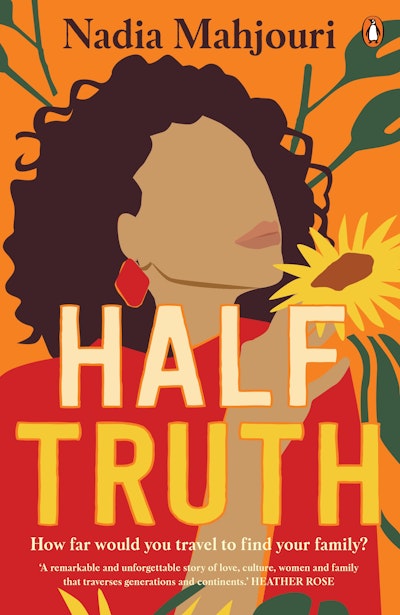Learn how Nadia Majhouri's personal journey and cultural heritage inspired her debut novel, Half Truth.
Where did the idea for the book come from?
Half Truth is inspired by two parts of my life. Firstly, my own experience of travelling from Tasmania in the late nineties as a new mother to Morocco to try to find my father. And secondly, my desire to write about my Moroccan grandmother – a woman I never met, but whose story I found fascinating.
My grandmother was born in a traditional village outside of Marrakech and was married to a much older man at the age of eleven. Her first child, my father, was born when she was just thirteen years old.
As soon as I heard her story, I wanted to know more about her and get to know her more deeply by imagining her life in fiction.
Who was your favourite character to write?
I loved writing my protagonist Khadija. Through her, I had the chance to immerse myself in Moroccan folktales and to learn about the rituals and beliefs of the indigenous people of Morocco – the Amazigh people.
I loved following her from childhood into old age and, as a mother of adult boys, I related to her struggle to be able to sit back as she watched her young son grow up and step out into the world, unable to keep him safe.
I also really enjoyed writing about her friendship with her neighbour Laila, whose playfulness and warm-hearted nature made me love her just as much as Khadija does.
What kind of research did you do for the book?
The research for Half Truth was intensive but fun.
I had to approach it from a few different angles – speaking to family and friends in Morocco, reading novels in translation about the era, learning the political history and accessing academic articles on various topics.
Additionally, travelling to Morocco over the past twenty-five years has given me lived experience of how things change – occasionally for the better.
In 1999, when the novel was set, the Tamazight written language was completely unrepresented in broader Moroccan society. Now, in 2025, it is taught in government schools, displayed on road signs and the names of government buildings are written in both Arabic and Tamazight.
Are there any books/authors/artworks that influenced your writing?
While writing Half Truth, I read many works by Moroccan and other Arab writers, mostly in translation from the French language.
One favourite is the Moroccan French author Leila Slimani, author of The Country of Others and Watch Us Dance.
Another favourite author whose work has undoubtedly influenced my writing is British Turkish author Elif Shafak, whose work I absolutely adore. And, in a list of books that have influenced my writing, I would be remiss to omit my favourite book of all time – A Thousand Splendid Suns by Khaled Hosseini. Heartbreaking and heart-opening, all at once.
What’s your #1 tip for aspiring authors?
Firstly, if you want to be a writer, you must write. And that often means that you need to be willing to stop feeling guilty about taking time to do it.
As a mother, I completely understand that it can feel like the least important thing to do, but if writing is your dream, then it belongs on the list, and it might even need to be at the top – at least for a season, or a period.
A fact or tid-bit you think might help readers understand your book better?
I hope you can understand the novel as-is, but it is definitely useful to know that much of Zahra’s journey is the same as my real life.
The timelines and all the characters that Zahra interacts with are fictional, but the Moroccan history mentioned in the novel is true.
What surprised you most about the publishing process?
So many things!
Everyone is lovely and supportive, and it is amazing to work with publishers and editors who care about my story and making it the best it can be as much as I do.
I have also been pleasantly surprised by how much involvement and support I have had in every stage of the process, from the cover art to the audiobook recording to the release events, I have been involved and my ideas respected at every point.
I also had no idea how much effort went into recording the audiobook – I have been blown away by the commitment of the producer Veronica Eze and the narrator Violette Ayad to getting every single Darija, Arabic, Tamazight and French word pronounced perfectly. Incredible!
What advice would you give to someone who’s currently working on their own debut novel?
Go for it – ask for help and apply for everything.
And get involved in the Australian writers' community – they are really the most incredibly supportive group of people you will ever find, and everyone will want you to succeed.
I would also say, don’t give up - writing takes dedication, commitment to craft and lots of willingness to withstand the inevitable rejection before you get the one ‘yes’ you dream of!













